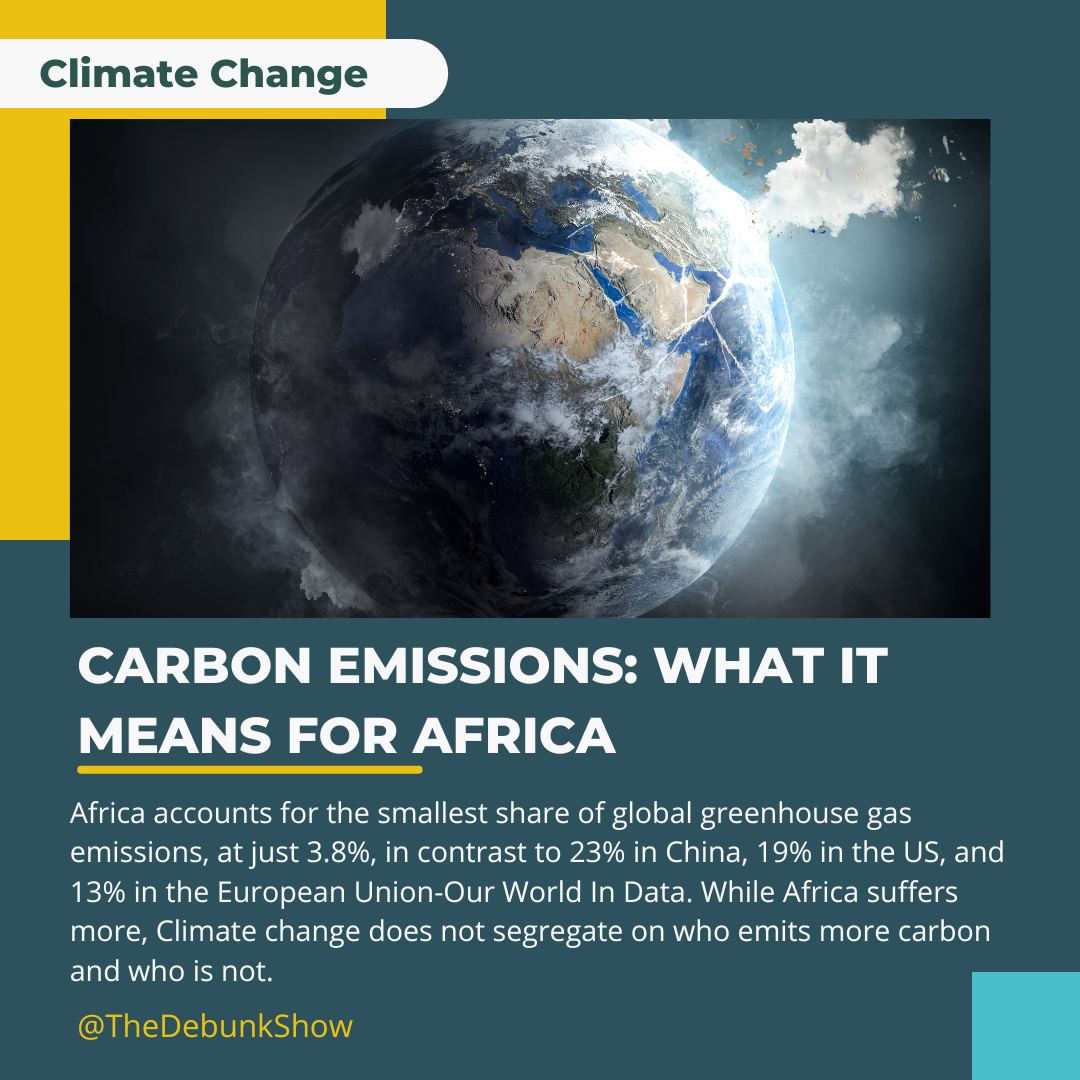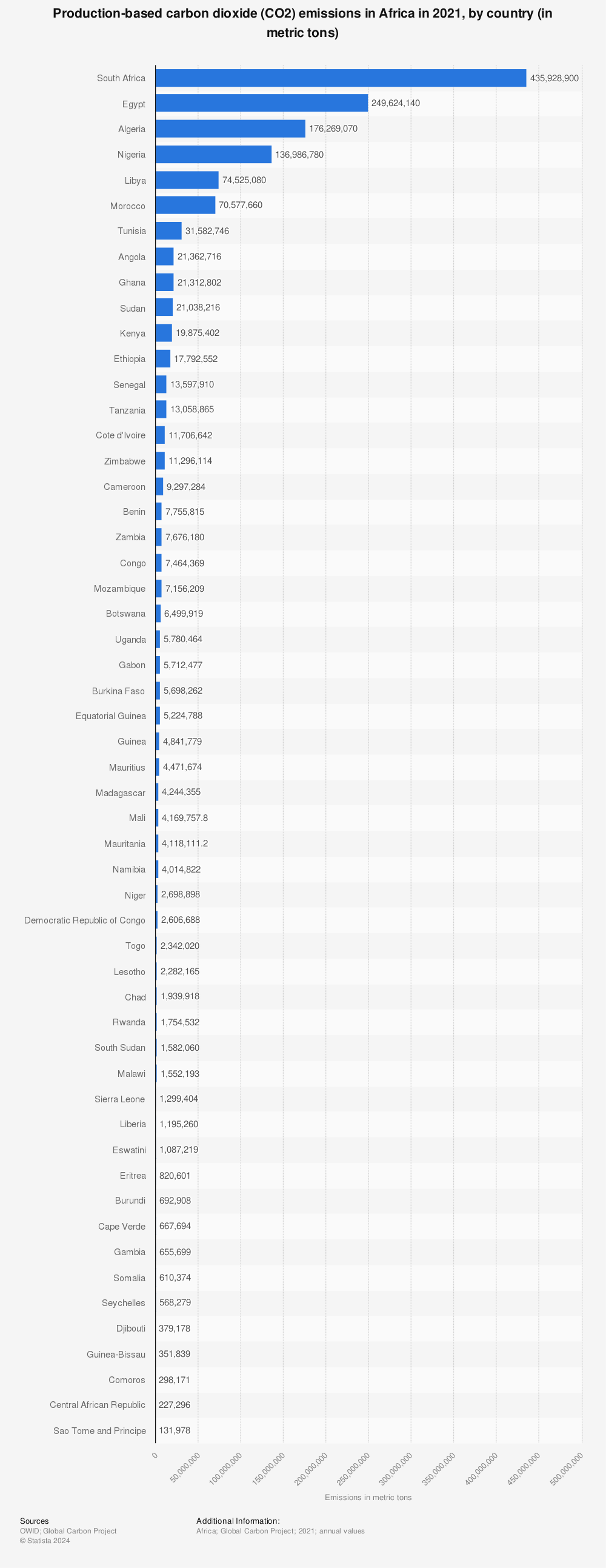What 4% CO2 emissions mean to Africa?

A tik tok user shared a video on 14th April 2022 with a caption which reads, “Crazy how Africa is being more affected by climate change when we produce less CO2 in the world.”
The video attracted more than 16000 likes, 443 comments, saved by 408 people and 721 shares. One of the comments suggested that 4% of CO2 emissions produced by Africa is nothing.

What is carbon dioxide?
Carbon dioxide is a colorless gas released after people and animals inhale oxygen. It is a greenhouse gas, meaning it absorbs and releases thermal radiation.
Carbon dioxide is a major contributor to the ability of the Earth to maintain a habitable temperature. Without carbon dioxide and other greenhouse gases, Earth would be too cold to live on. However, while carbon dioxide alone is not a harmful gas, its abundance of it is what causes climate change due to overheating in the atmosphere
Carbon dioxide comes from both natural and human sources; these include volcanoes, animals and plant decay, burning of fossil fuels like coal. Scientists determine the amount of C02 in the atmosphere by the carbon cycle system which shows the sources of the gas, where it vanishes and what adds or removes it, according to the Natural History Museum.
The cause of rising carbon dioxide levels in the atmosphere is mainly linked to human activities
CO2 PRODUCED BY AFRICA
According to a 2020 Africa report by CDP, a not-for-profit charity that runs the global disclosure system for investors, companies, cities, states and regions to manage their environmental impacts and research by Our World in Data, Africa accounts for the smallest share of global greenhouse gas emissions, at just 3.8%, in contrast to 23% in China, 19% in the US, and 13% in the European Union.
To break down the percentage, Africa produced 1.45 billion tonnes of carbon dioxide in 2021 according to Our World in Data (OWID), a scientific online data publication that focuses on large global problems. One tonne of carbon dioxide is equivalent to 1000 kilograms meaning if this was sugar, you would need.
PRODUCTION OF CO2 PER AFRICAN COUNTRY
In 2020, South Africa contributed the most to co2 emissions in Africa with nearly 452 million metric tons. Egypt ranked second with around 213 million metrics in emissions.
Other large producers of CO2 emissions on the continent were Algeria, Nigeria, and Morocco,” according to data presented by Statista– a statistics portal for market data, research and studies.

Find more statistics at Statista
Graph showing carbon emissions released by African countries as of 2022, according to a report by the Emissions Database for Global Atmospheric Research (EDGAR), a global database of anthropogenic emissions of greenhouse gases and air pollution on Earth.
Other sources showing Africa’s carbon emission between 2019 to 2020 include data from the World Bank with sub-Saharan countries contributing up to 823,770-kilo tonnes of Carbon.
Rising carbon emissions have had a great impact on Africa, especially hazards ranging from floods to droughts, pests, insects, diseases and more since the continent’s adaptation and resilience capacity are still low.
The UN’s world food programme says the number of people at risk of starvation due to the drought that hit the horn of Africa has increased to 22 million.
From this analysis, the 4% carbon emissions contributed by Africa is actually something. It contributes to the same effects as the biggest emitters in the world experience. The only difference is that most African countries are still developing and other continents have coping mechanisms put in place in case. Climate change is not segregative on who emits more carbon and who is not.
This fact-check was produced by Debunk Media Initiative with support from Code for Africa’s PesaCheck, International Fact-Checking Network and African Fact-Checking Alliance network.
2021 Africa Check Award-winning Fact-Checker, Media Challenge Initiative Fellow class of 2020, 2022 Code For Africa and International Fact-Checking Network Climate Change Fact-Checking Fellow, 360 Digital Sherlock, trained by the Atlantic Council’s Digital Forensic Research Lab in open-source intelligence.

